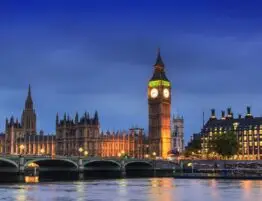
The United Kingdom, under the leadership of Prime Minister Rishi Sunak, has announced a robust approach to significantly reduce net migration. This move, reflecting Sunak’s commitment to addressing concerns over the record high net migration figures, includes a series of stringent visa measures aimed at slashing the number of migrants entering the UK through legal routes.
A key aspect of this strategy is the substantial increase in the minimum salary required for skilled foreign workers. The threshold is set to rise by one-third, reaching £38,700 ($48,900), a move designed to tighten the inflow of skilled workers from abroad. However, to address concerns in critical sectors, health and social workers are exempted from this salary requirement.
The context of these measures is rooted in a decade-long political narrative in Britain, where high levels of legal migration have been a central issue. The matter gained significant traction in the lead-up to the 2016 Brexit vote, where control over immigration was a pivotal factor. The latest figures, showing annual net migration to the UK at a record 745,000 in 2022, have further intensified the debate, prompting Sunak’s government to take what they describe as “radical action.”
Home Secretary James Cleverly underscored the government’s stance, projecting a reduction in net migration figures by 300,000 as a result of these measures. This approach aligns with Sunak’s broader agenda, including efforts to deport migrants who arrive illegally to countries like Rwanda, as part of a wider immigration control strategy.
In addition to the salary threshold increase, other measures include preventing foreign health workers from bringing family members on their visas, a 66% increase in the surcharge migrants must pay to use the health service, and raising the minimum income requirement for family visas.
However, these measures have sparked significant controversy and criticism. Business owners and trade unions alike have voiced concerns, highlighting the potential counterproductive impact on the private sector and the state-run health service, both already struggling with labor shortages. The end of free movement from the EU, a consequence of Brexit, has exacerbated these challenges.
The government’s decision to abolish the so-called shortage occupations list, which facilitated the hiring of migrant workers in sectors with severe staff shortages, has particularly alarmed businesses. The plan to end the system allowing employers to pay migrant workers only 80% of the standard rate for jobs with labor shortages has also raised concerns about exacerbating the current tight labor market.
Studies suggest that foreign workers have little to no impact on overall wage or employment levels in the UK. Yet, the acute shortage of candidates to fill vacancies remains a pressing issue for many businesses. Critics, including Kate Nicholls, chief executive of trade body UKHospitality, argue that these changes will shrink the talent pool and worsen shortages in sectors like hospitality.
The Bank of England’s observations that businesses find it somewhat easier to hire, despite persistent skills shortages in some sectors, provides a nuanced view of the labor market situation. Furthermore, trade unions, particularly in the health sector, have expressed grave concerns. Christina McAnea, the general secretary of UNISON, the main health sector union, has warned of a “total disaster” for the health service, fearing that the new measures will drive migrants to more welcoming countries.
Source: UK Home Office, licensed under the Open Government Licence v3.0.








